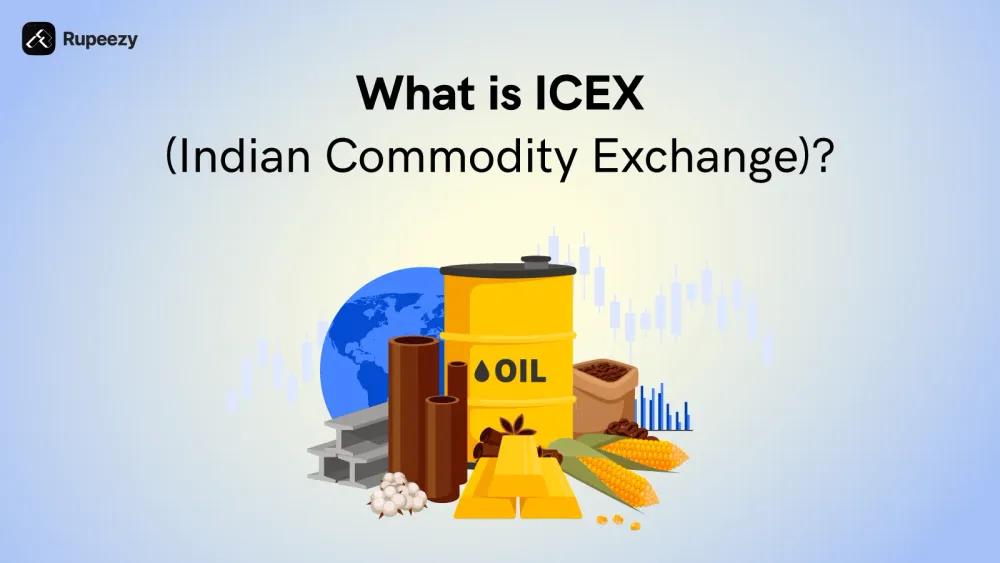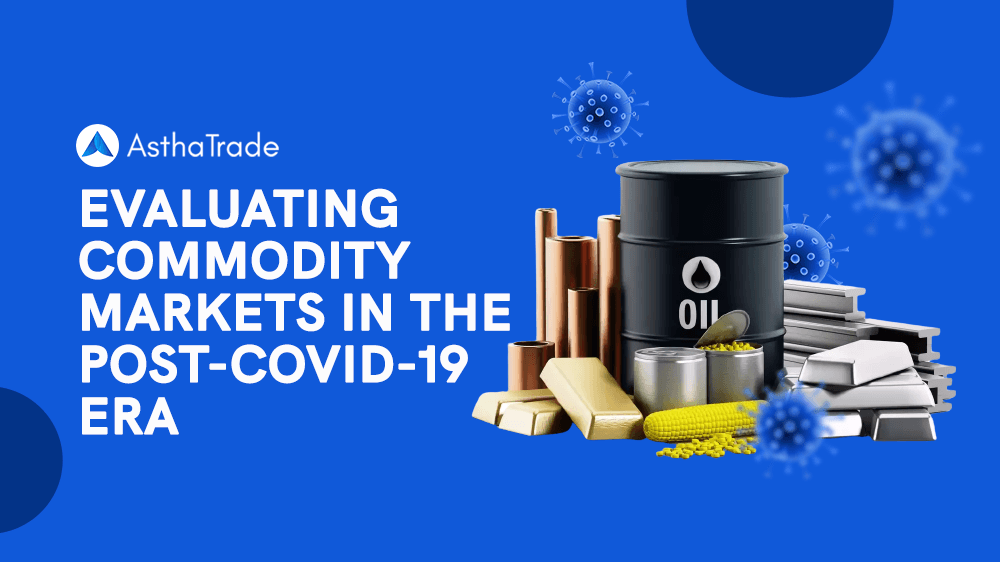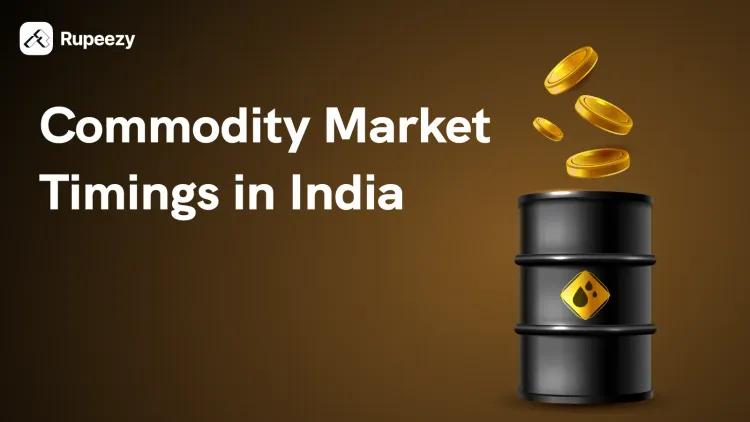What is ICEX (Indian Commodity Exchange)?


00:00 / 00:00
Have you ever wondered where diamonds, steel, or even basmati rice are traded before they reach your home or investment portfolio? Behind the scenes of these important commodities lies a sophisticated marketplace where buyers and sellers meet to hedge risks, discover prices, and make investments. This is the world of commodity markets. In India, the Indian Commodity Exchange, or ICEX, stands out for its innovative approach and unique product offerings.
The Indian Commodity Exchange (ICEX) is a SEBI-regulated commodity derivatives exchange that provides a trading platform for a variety of agricultural and non-agricultural products. It is most known for creating the world's first diamond futures contract. ICEX allows investors to diversify portfolios, hedge against price volatility, and participate in real-time market dynamics.
In this article, we will look at the Indian Commodity Exchange in detail. You'll learn about its history, how it has changed over time, its fees and charges, daily trading hours and settlement cycles, and the current status of this exchange.
What is ICEX?
The full form of ICEX is Indian Commodity Exchange Limited. It is an online commodity derivatives exchange regulated by SEBI and headquartered in Mumbai, Maharashtra. ICEX played a crucial role in facilitating the trading of commodities such as metals, industrial metals, spices, energy products, crude oil, and agricultural products in its national trading platform through its appointed commodity trading brokers in India. It was led by shareholders, including MMTC, PNB, KRIBHCO, Indiabulls Housing, and others.
Commodities that are Traded in ICEX
Here are the different commodities that traded on the Indian Commodity Exchange (ICEX):
1. Agricultural Products
Spices (Black Pepper and Cardamom)
Oil and seeds (Mustard seeds, Castor oil, Soybean Oil and Khopra)
Fibres (Raw jute and Jute Sack)
Plantation (Rubber)
Others (Guar Seed and Isabgol seed)
2. Non-Agricultural Products
Metals (Diamond and Steel)
History and Evolution of ICEX
The Indian Commodity Exchange Ltd (ICEX) marked a significant milestone in its history when it resumed trading operations on August 28, 2017, following SEBI approval. Trading had been suspended in 2014 due to low volume and regulatory issues. The relaunch was notable because ICEX was the first exchange in the world to introduce a one-carat diamond derivative contract.
After one year, on August 28, 2018, ICEX continued its product expansion by introducing the Steel Long contract, which added depth to its trading offerings. Around the same time, the National Multi-Commodity Exchange (NMCE) merged with ICEX, bringing about a significant transformation. The National Company Law Tribunal (NCLT) approved this merger with orders dated August 27 and 31, 2018. However, the merger was effective on September 7, 2018. This merger enabled all commodities previously traded on NMCE to seamlessly transition to the ICEX platform, thereby expanding the range of available contracts.
On July 11, 2019, ICEX launched the Paddy Basmati derivative contract. This move highlights the exchange's commitment to introducing new and agriculturally relevant contracts to meet the needs of the Indian market. Beginning October 1, 2018, ICEX outsourced its clearing, settlement, delivery, and risk management services to the Metropolitan Clearing Corporation of India Ltd (MCCIL) in order to comply with SEBI regulations and maintain robust operational standards.
ICEX partnered with Millennium IT, a subsidiary of the London Stock Exchange Group, for advanced trading technology. With this support, ICEX developed a strong infrastructure and aims to involve farmers, traders, and real users in commodity trading, helping them with price discovery, risk management, and supply chain efficiency.
ICEX vs Other Commodity Exchanges in India
To better understand where ICEX stands among India's major commodity exchanges, the table below provides a comparative overview of ICEX, MCX, and NCDEX based on key features and focus areas:
Aspects | ICEX (Indian Commodity Exchange) | MCX (Multi Commodity Exchange of India Ltd) | NCDEX (National Commodity and Derivatives Exchange) |
|---|---|---|---|
Meaning | It is an online screen-based commodity derivatives exchange regulated by SEBI. It facilitates trading in metals, industrial metals, spices, energy products, and agri-products. | MCX is located in Mumbai and controls 98.10% of commodity trading in India. It is the world's largest silver and gold trading centre. | NCDEX deals in trading agricultural products like pulses, cereals, and spices. It provides a platform for farmers and traders to hedge against price volatility. |
Year of Launch | 2009 | 2003 | 2003 |
Commodities Traded | Gold, silver, copper, lead, crude oil, mustard, natural gas, soybean, soybean oil, jute, mentha oil, and iron ore | Metals, gold, crude oil, spices, pulses, petrochemicals, and cereals | Cereals, spices, fibres, oils, gold, silver, copper, steel, crude oil, Brent crude oil, and polyvinyl chloride |
Settlement and Clearing Corporation | MCCIL (Metropolitan Clearing Corporation) – outsourced | MCXCCL (MCX Clearing Corporation) | NCCL (NCDEX Clearing Corporation) |
ICEX Trading Fees and Charges
As we compared ICEX with other exchanges, here we will look at a table highlighting the various charges associated with trading on ICEX:
Particulars | Trading Member with internet connectivity | Trading Member with leased line connectivity | Self-Clearing Member | Trading and Clearing Member | Professional Clearing Member |
Membership fees | Rs. 6,50,000 | Rs. 7,50,000 | Rs. 10,00,000 | Rs. 10,00,000 | Rs. 12,50,000 |
(+) GST @ 18% | Rs. 1,17,000 | Rs. 1,35,000 | Rs. 1,80,000 | Rs. 1,80,000 | Rs. 2,25,000 |
Total | Rs. 7,67,000 | Rs. 8,85,000 | Rs. 11,80,000 | Rs. 11,80,000 | Rs. 14,75,000 |
Net Worth Requirement | |||||
Amount required | Rs. 15,00,000 | Rs. 15,00,000 | Rs. 1,00,00,000 | Rs 3,00,00,000 | Rs 3,00,00,000 |
Deposit Requirements (As per SEBI norms) | |||||
Members without Algo trading | Rs. 10,00,000 | Rs. 10,00,000 | Rs. 10,00,000 | Rs. 10,00,000 | -- |
Members doing Algo trading | Rs. 50,00,000 | Rs. 50,00,000 | Rs. 50,00,000 | Rs. 50,00,000 | -- |
Interest Free deposit (Liquid Assets) | -- | -- | Rs. 50,00,000 | Rs. 50,00,000 | Rs. 50,00,000 |
ICEX Trading Hours and Settlement Cycles
As we delved into looking at ICEX charges, we will look at the trading hours and settlement cycles of the exchange:
Trading Hours
The Indian Commodity Exchange (ICEX) was open five days a week, Monday through Friday, and provides traders with a structured and reliable trading environment. ICEX has established specific trading hours for agricultural and non-agricultural products.
The trading hours are as follows.
For Agro Commodities: 9:00 am to 5:00 pm
For Non-Agro Commodities: 9:00 am to 11:30 / 11:55 pm
Settlement Cycle
ICEX follows a standard settlement protocol to ensure safe and timely trade execution. The settlement cycle typically follows a T+1, meaning the trade is settled either one or two business days after the transaction date, depending on the specific contract. For contracts resulting in delivery, it occurs within 2-7 days after expiry.
Current Status of ICEX
The Indian Commodity Exchange (ICEX) exited the commodity derivatives exchange business in December 2024 after the Securities and Exchange Board of India (SEBI) withdrew its recognition. This decision brought to an end a process that began in May 2022, when SEBI first delisted ICEX for non-compliance with regulatory requirements such as minimum net worth and infrastructure deficiencies. Despite efforts to raise funds and comply with SEBI regulations, ICEX was unable to meet the required criteria, resulting in its voluntary exit from the exchange market.
Following the exit, ICEX must meet certain obligations, such as paying any outstanding tax liabilities and refraining from using the term "stock exchange" in its name. Furthermore, the exchange must keep a database of all transactions that occurred on its platform during its operational period.
Given these developments, ICEX is no longer a player in India's commodity derivatives markets. Investors and market participants should look into alternative exchanges, such as the Multi Commodity Exchange (MCX) and the National Commodity and Derivatives Exchange (NCDEX), which continue to operate and provide a diverse range of commodity trading opportunities.
Conclusion
The Indian Commodity Exchange (ICEX) once held a distinct position in India's commodity market due to its innovative offerings, such as diamond and paddy basmati futures. However, regulatory issues and market dynamics eventually forced its formal exit from the commodity trading space. As ICEX steps away, investors must turn to other active platforms like MCX and NCDEX for their commodity trading needs.
Check Out These Related Articles |
The content on this blog is for educational purposes only and should not be considered investment advice. While we strive for accuracy, some information may contain errors or delays in updates.
Mentions of stocks or investment products are solely for informational purposes and do not constitute recommendations. Investors should conduct their own research before making any decisions.
Investing in financial markets are subject to market risks, and past performance does not guarantee future results. It is advisable to consult a qualified financial professional, review official documents, and verify information independently before making investment decisions.

All Category









